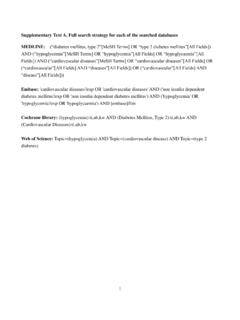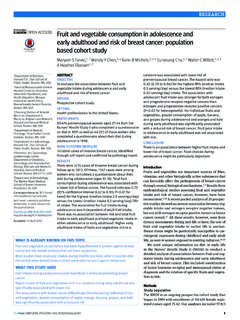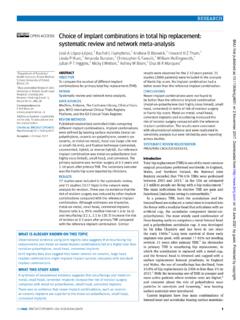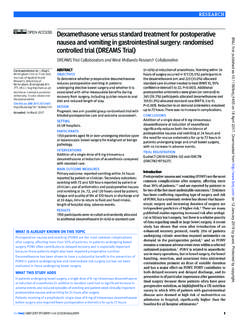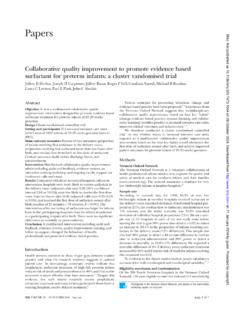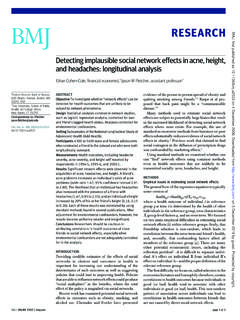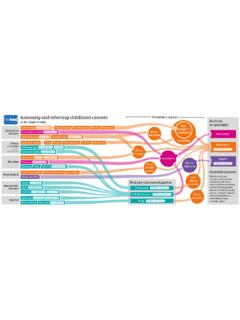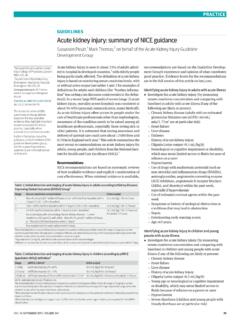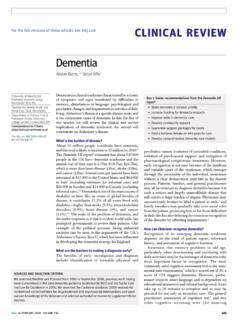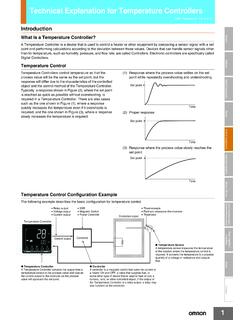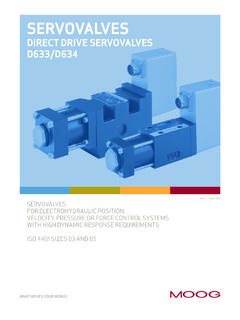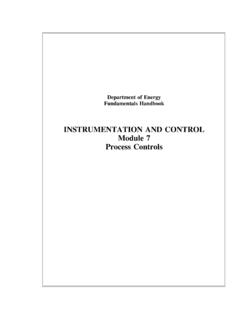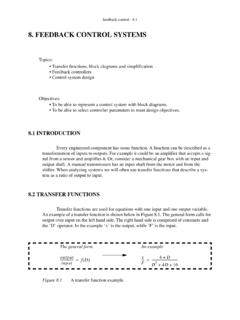Transcription of Vitamin D and marine omega 3 fatty acid supplementation ...
1 RESEARCHthe bmj | BMJ 2022;376:e066452 | doi: 1 Vitamin D and marine omega 3 fatty acid supplementation and incident autoimmune disease: VITAL randomized controlled trialJill Hahn,1,2,3 Nancy R Cook,1,4 Erik K Alexander,5 Sonia Friedman,6 Joseph Walter,4 Vadim Bubes,4 Gregory Kotler,4 I-Min Lee,1,4 JoAnn E Manson,1,4 Karen H Costenbader2 ABSTRACTOBJECTIVETo investigate whether Vitamin D and marine derived long chain omega 3 fatty acids reduce autoimmune disease D and omega 3 trial (VITAL), a nationwide, randomized, double blind, placebo controlled trial with a two-by-two factorial in the United 871 participants, consisting of 12 786 men 50 years and 13 085 women 55 years at D (2000 IU/day) or matched placebo, and omega 3 fatty acids (1000 mg/day) or matched placebo.
2 Participants self-reported all incident autoimmune diseases from baseline to a median of years of follow-up; these diseases were confirmed by extensive medical record review. Cox proportional hazard models were used to test the effects of Vitamin D and omega 3 fatty acids on autoimmune disease OUTCOME MEASURESThe primary endpoint was all incident autoimmune diseases confirmed by medical record review: rheumatoid arthritis, polymyalgia rheumatica, autoimmune thyroid disease, psoriasis, and all 871 participants were enrolled and followed for a median of years. 18 046 self-identified as non-Hispanic white, 5106 as black, and 2152 as other racial and ethnic groups. The mean age was years.
3 For the Vitamin D arm, 123 participants in the treatment group and 155 in the placebo group had a confirmed autoimmune disease (hazard ratio , 95% confidence interval to , P= ). In the omega 3 fatty acids arm, 130 participants in the treatment group and 148 in the placebo group had a confirmed autoimmune disease ( , to , P= ). Compared with the reference arm ( Vitamin D placebo and omega 3 fatty acid placebo; 88 with confirmed autoimmune disease), 63 participants who received Vitamin D and omega 3 fatty acids ( , to ), 60 who received only Vitamin D ( , to ), and 67 who received only omega 3 fatty acids ( , to ) had confirmed autoimmune D supplementation for five years, with or without omega 3 fatty acids, reduced autoimmune disease by 22%, while omega 3 fatty acid supplementation with or without Vitamin D reduced the autoimmune disease rate by 15% (not statistically significant).
4 Both treatment arms showed larger effects than the reference arm ( Vitamin D placebo and omega 3 fatty acid placebo).STUDY NCT01351805 and NCT01169259 IntroductionAutoimmune diseases, characterized by an inflammatory autoimmune response to self-tissues, are the third leading cause of morbidity in the industrialized world and a leading cause of mortality among 2 Autoimmune diseases are chronic conditions with increasing prevalence with age and major societal and economic burdens due to a lack of effective 4 Vitamin D and marine derived, long chain omega 3 fatty acids are two nutritional supplements investigated as potential autoimmune disease treatments.
5 In vitro, the lipid soluble active form of Vitamin D (1,25-hydroxyvitamin D) regulates genes involved in inflammation and acquired and innate immune Animal models of autoimmune disease have reported Vitamin D to be beneficial because it inhibits the development or progression of disease,5-8 but observational studies have found conflicting results9-12; small trials of Vitamin D supplementation in people with established autoimmune disease have mainly reported disappointing 14 Whether Vitamin D supplementation can prevent autoimmune disease onset is still unknown and has not been tested in clinical trials.
6 Randomized controlled trials of people with prevalent rheumatoid arthritis, systemic 1 Department of Epidemiology, Harvard Chan School of Public Health, Boston, MA, USA2 Division of Rheumatology, Inflammation and Immunity, Brigham and Women s Hospital, Harvard Medical School, Boston, MA, USA3 Channing Division of Network Medicine, Department of Medicine, Brigham and Women s Hospital, Boston, MA, USA4 Division of Preventive Medicine, Department of Medicine, Brigham and Women s Hospital and Harvard Medical School, Boston, MA, USA5 Division of Endocrinology, Diabetes and Hypertension, Brigham and Women s Hospital, Harvard Medical School, Boston, MA, USA6 Center for Crohn s and Colitis, Division of Gastroenterology, Hepatology and Endoscopy, Brigham and Women s Hospital, Boston, MA, USAC orrespondence to: K H Costenbader (or @karen_kc123 on Twitter; ORCID 0000-0002-8972-9388)Additional material is published online only.
7 To view please visit the journal this as: BMJ 2022;376:e066452 bmj-2021-066452 Accepted: 1 December 2021 WHAT IS ALREADY KNOWN ON THIS TOPICV itamin D regulates a wide array of genes involved in inflammation and immunity, and has been inconsistently associated with reduced risk of several autoimmune diseases in previous observational studiesDietary marine derived long chain omega 3 fatty acids decrease systemic inflammation and ameliorate symptoms in some autoimmune diseasesEvidence is needed on whether omega 3 fatty acids lower the risk of developing autoimmune diseaseWHAT THIS STUDY ADDSThis trial of older adults in the United States found that Vitamin D and omega 3 fatty acid supplementation for five years reduced incident autoimmune disease compared with no supplementationThe clinical importance of this trial is high because these are well tolerated, non-toxic supplements.
8 And other effective treatments to reduce the incidence of autoimmune diseases are lacking on 6 December 2022 by guest. Protected by : first published as on 26 January 2022. Downloaded from RESEARCH2 doi: | BMJ 2022;376:e066452 | the bmjlupus erythematosus,15 and psoriasis16 have also shown improvements in outcomes with omega 3 fatty acids, but few studies have examined omega 3 fatty acids in autoimmune disease prevention. A Danish observational study found a 49% reduction in rheumatoid arthritis risk for each 30 g increase in daily fatty fish intake ( 8 g fat/100 g fish).17 However, randomized controlled trials examining omega 3 fatty acid intake and autoimmune disease risk are report the effects of Vitamin D and omega 3 fatty acid supplementation on autoimmune disease incidence (including rheumatoid arthritis, polymyalgia rheumatica, autoimmune thyroid disease, and psoriasis) within the large scale Vitamin D and omega 3 trial (VITAL) over approximately five years of randomized follow-up.
9 We assessed whether the effects differed by age, sex, race, body mass index, and by baseline concentrations of Vitamin D, or by eicosapentaenoic acid plus docosahexaenoic acid or dietary fish design and oversightThis randomized, double blind, placebo controlled , two-by-two factorial design trial was conducted to examine the benefits and risks of Vitamin D (cholecalciferol; 2000 IU/day) and marine omega 3 fatty acids (1 g/day as a fish oil capsule containing 460 mg of eicosapentaenoic acid and 380 mg of docosahexaenoic acid) in the prevention of cancer and cardiovascular disease among 25 871 participants (men aged 50 years; women aged 55 years; NCT 01169259).
10 Aggregate incident autoimmune disease was a prespecified endpoint of a funded ancillary study started before trial recruitment (NCT01351805). Trial protocol, oversight, and CONSORT diagram (consolidated standards of reporting trials; supplementary fig 1), as adhered to in this study, have been previously This trial did not intend to examine Vitamin D supplementation in a population that was Vitamin D deficient, but in participants representative of Vitamin D levels in other large trials and in the general older adult population in the United participants, recruited throughout the US, were required to limit Vitamin D use from outside sources to no more than 800 IU/day, and to forego the use of fish oil supplements.
